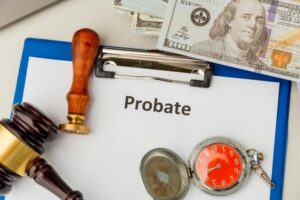
Court Closures
At this point, the Surrogate’s Courts are open in every county in the state of New York. Unfortunately, New York City suffers from the worst backlog in the state. Nevertheless, the Surrogate’s Courts in all five counties are now open, although they have deprioritized certain types of petitions. Below is a description of two loopholes that can drastically improve the odds of resolving your probate case quickly.
Consensual Probate Applications
New York Surrogate’s Courts will prioritize the processing of “consensual” probate applications. A probate application is consensual if all necessary parties (anyone who stands to gain or lose from the disposition of the probate estate) agree in writing that the will is valid and that it should be probated.
A probate application is non-consensual if:
- Any two necessary parties disagree over an issue involved in the probate process (by disputing the validity of the will, for example);
- Any necessary party suffers from a “disability”—they are under 18, for example, or they suffer from dementia;
- The proceeding is adversarial by its very nature—a petition by a beneficiary to remove an executor, for example; or
- Any necessary party refuses to consent in writing to the probate process.
If all necessary parties have consented in writing to the probate of the will, and if your documentation is in order, then the Surrogate’s Court should appoint a personal representative for the estate and commence the probate process.
“Essential” Probate Applications
Consensual probate applications can be elusive. After all, it only takes one dissenter to eliminate the possibility of a consensual probate application. If this happens, keep in mind that the “consensual application” exception is not the only loophole that allows you to enjoy priority processing of your probate application.
The other major loophole applies to essential applications. Essential probate applications are applications that are particularly important, or applications of an emergency nature, such as:
- Cases involving allegations of major fraud, theft, or waste of probate assets, which must be expedited to protect estate property;
- A dispute over DNA testing or an autopsy that must be conducted before the deceased can be interred;
- An application for guardianship of a minor child when the decedent was the child’s only surviving parent; and
- Similar situations.
The thread that ties essential applications together is the threat of irreversible harm if something isn’t done quickly. Ultimately, a New York Surrogate’s Court will apply the “rule of common sense” when deciding whether or not a given case should be expedited.
E-Filing
E-filing is one COVID-19 innovation that has had the net effect of speeding up rather than slowing down probate processing. Although not all case types are eligible for electronic filing (“e-filing”), the use of e-filing has been greatly expanded during the COVID-19 crisis. Check with the particular court that you plan to use to find out how the new e-filing rules apply to you.
The Bottom Line: How Long Will the Process Take?
The answer to this question is not very palatable to most people. As long as the COVID-19 crisis endures, it is not possible to say just how long the probate process will take. Probate timelines are rather unpredictable even without a global pandemic. With the COVID-19 crisis, the New York probate system has been thrown into further disarray.
While we cannot tell you how long the process will take, we can take action to minimize the waiting. It is particularly important to file a probate application as quickly as possible, without any mistakes that could delay the process. As things get back to normal, courts get back to regular business, and long-standing backlogs are cleared, greater certainty will return to the New York probate process.
Ways to Keep Your Assets Out of Probate in the First Place
If you are not yet involved in probate, now might be a good time to take steps to avoid probate altogether after you die. After all, the probate timeline is unpredictable even in the best of times. Following are some steps you can take to chip away at the size of your probate estate, or perhaps even to eliminate it altogether:
- Set up a revocable living trust and place assets in it.
- Purchase life insurance.
- Set up a Uniform Transfer to Minors (UTMA) account.
- Put your money into a joint bank account with a beneficiary. Its contents will automatically pass to the other joint owner(s) the moment you die.
- Purchase U.S. Savings Bonds with “payable on death” beneficiaries.
- Put your money into a Transfer on Death Investment Account.
- Make gifts to beneficiaries during your lifetime without negative tax consequences (see your attorney for details).
- Form an LLC and place assets into it.
- Create a corporation, place your assets in it, and purchase corporate stock.
- Hold real estate as a joint tenant with the right of survivorship. Your real estate will pass to the other joint tenant(s) as soon as you die. Other forms of joint ownership, such as tenancy by the entirety, are possible as well.
The foregoing list is not exhaustive—there are many ways to avoid probate.
Take Action Today
If you are like most people, you shudder at the prospect of your assets languishing in probate while your beneficiaries wait for distributions. It doesn’t have to be like that, however. You can take steps today to take care of your beneficiaries tomorrow.
If, on the other hand, you are prosecuting a probate proceeding right now, it matters very much how you respond—and who you retain to guide you through the process.
Please contact our lawyer at the Law Office of Andrew M. Lamkin, P.C. online or by calling 516-605-0625 so that we can explore your options.


